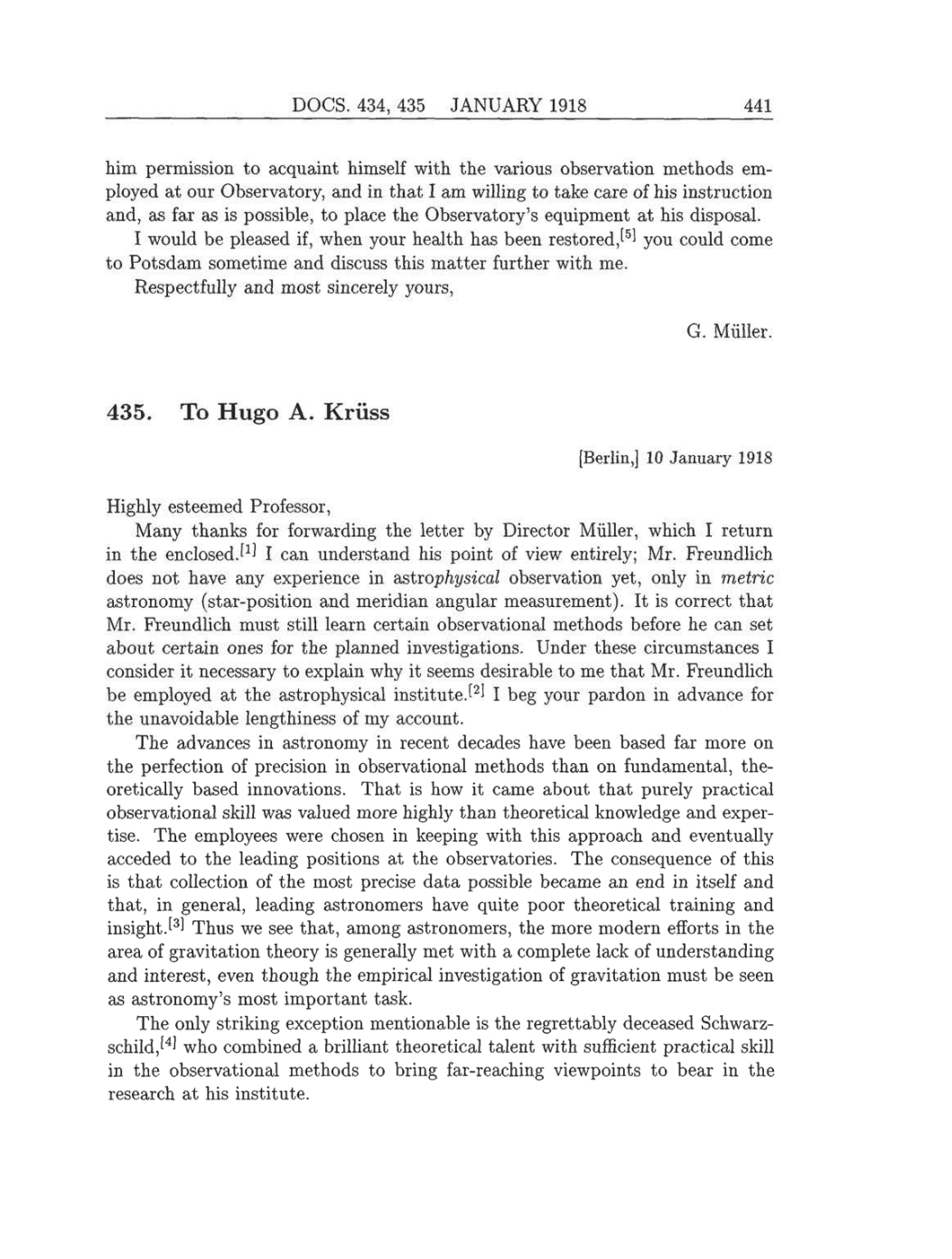DOCS.
434,
435
JANUARY
1918 441
him
permission
to
acquaint
himself with the various observation
methods
em-
ployed
at
our
Observatory,
and
in that
I
am
willing
to take
care
of his
instruction
and,
as
far
as
is
possible,
to
place
the
Observatory’s equipment
at
his
disposal.
I
would be
pleased
if,
when
your
health
has been
restored,[5] you
could
come
to Potsdam
sometime
and
discuss
this
matter
further
with
me.
Respectfully
and most
sincerely yours,
G.
Müller.
435. To
Hugo
A.
Krüss
[Berlin,]
10 January 1918
Highly
esteemed
Professor,
Many
thanks
for
forwarding
the letter
by
Director
Müller,
which
I
return
in
the
enclosed.[1] I
can
understand
his
point
of
view
entirely;
Mr.
Freundlich
does not have
any experience
in
astrophysical
observation
yet, only
in metric
astronomy
(star-position
and meridian
angular measurement).
It
is
correct
that
Mr. Freundlich
must
still learn certain observational methods before he
can
set
about
certain
ones
for
the
planned investigations.
Under these circumstances
I
consider it
necessary
to
explain why
it
seems
desirable to
me
that
Mr. Freundlich
be
employed
at
the
astrophysical
institute.[2]
I
beg your
pardon
in advance for
the
unavoidable
lengthiness
of
my
account.
The
advances in
astronomy
in recent decades have been based
far
more
on
the
perfection
of
precision
in observational methods
than
on
fundamental,
the-
oretically
based innovations. That
is how
it
came
about
that
purely
practical
observational skill
was
valued
more highly
than
theoretical
knowledge
and
exper-
tise.
The
employees
were
chosen in
keeping
with this
approach
and
eventually
acceded
to
the
leading positions
at
the
observatories. The
consequence
of
this
is
that
collection of
the
most
precise
data
possible
became
an
end in itself and
that,
in
general, leading
astronomers
have
quite poor
theoretical
training
and
insight.[3]
Thus
we see
that,
among astronomers,
the
more
modern efforts in
the
area
of
gravitation
theory is
generally
met with
a
complete
lack of
understanding
and
interest,
even
though
the
empirical investigation
of gravitation
must be
seen
as
astronomy’s
most important
task.
The
only striking exception
mentionable
is
the
regrettably
deceased Schwarz-
schild,[4]
who combined
a
brilliant theoretical
talent with
sufficient
practical
skill
in
the
observational methods
to
bring
far-reaching
viewpoints
to
bear
in
the
research
at
his
institute.
